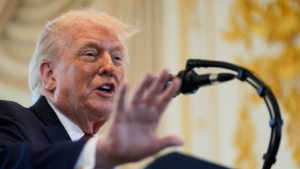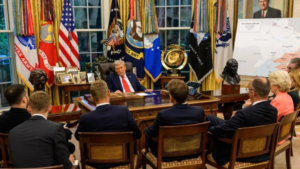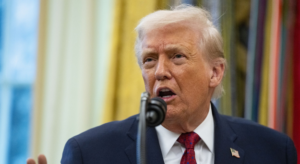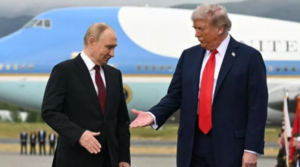Ecco il mio articolo, uscito stamattina sul Financial Times, che svela i retroscena di quell’estate del 2011, quando Giorgio Napolitano già sondava Mario Monti sulla sua disponibilità a prendere il posto di Silvio Berlusconi, cosa che effettivamente avvenne solo diversi mesi dopo.
10 febbraio 2014 – For years Carlo De Benedetti, the Italian industrial tycoon, has spent a few days each summer relaxing with friends and family in the refreshing climate of St Moritz. The posh Swiss resort is a favourite with the great and good of Italy, among them Mario Monti, the former prime minister and an old friend of Mr De Benedetti’s.
In the summer of 2011 the two met in the industrialist’s alpine retreat for a private chat about a development that was to have profound public consequences.
“Mario asked if we could get together, and I chose a typical little Swiss trattoria for dinner, just outside of St Moritz. But at the last minute he said he wanted to talk in private and so I said ‘Sure, stop by my house before dinner’ and so he came by,” Mr De Benedetti says. “And it was then he told me that it was possible that the president of the republic, Napolitano, would ask him to become prime minister, and he asked my advice.”
Mr De Benedetti says the two men “discussed whether he should accept the offer, and when would be the right moment to do so. This happened at my house in August, so in fact he had already spoken with President Napolitano.”
The offer from Giorgio Napolitano, the Italian president, to Mr Monti of the job of prime minister – a post that was still very much occupied by Silvio Berlusconi, the billionaire centre-right politician – is at the core of serious questions of legitimacy in Italy. What happened in Italy that summer and autumn as policy makers battled the crisis gripping the eurozone is still a subject of intense debate.
That the president was planning the replacement of the elected Mr Berlusconi by the unelected technocrat Mr Monti – months ahead of the eventual transfer of power in November – reinforces concerns about Mr Napolitano’s repeated and forceful interventions in politics. His outsized role since the crisis has led many to question whether he stretched his constitutional powers to their limits – or even beyond.
Summer of crisis
Outside the calm of St Moritz that summer, the eurozone crisis was raging. Market speculation against Italian and Spanish sovereign debt was rampant and the spread between Italian Treasury bonds and German Bunds was rocketing. As its borrowing costs rose there was talk that Italy could default. Italy was in crisis – politically as well as economically.
In Rome, Mr Berlusconi was presiding over a rancorous, unstable coalition and increasingly distracted by allegations over sexual relations with Karim el-Mahroug, a Moroccan nightclub dancer. All of Europe seemed to be lambasting him.
Yet despite the controversy engulfing Mr Berlusconi, he was still the sitting prime minister and his government was legitimate under the rules of Italy’s parliamentary democracy.
How long that might last was a subject of conversation between Mr De Benedetti and Mr Monti that August.
“I told Mario that he should take the job but that it was all a question of timing. If Napolitano formalised the offer in September then that was fine, but if he left it until December then it would be too late,” recounts Mr De Benedetti.
Romano Prodi, a former president of the European Commission and another old friend of Mr Monti’s, recalls a similar conversation, but even earlier, towards the end of June 2011. “We had a long and friendly conversation,” Mr Prodi says, “and he asked for my thoughts, and I told him, ‘look here Mario, there is nothing you can do to become prime minister but if the job is offered to you then you cannot say no. So you should be the happiest man alive’.”
Corrado Passera, a leading banker who was to become Mr Monti’s minister for economic development, infrastructure and transport, was meanwhile given the green light that summer by Mr Napolitano to prepare a confidential 196-page document containing his own proposals for a wide-ranging “shock therapy” for the Italian economy. It was a programme of proposed government policies and reforms that went through four successive drafts as Mr Napolitano and Mr Passera discussed it back and forth that summer and into the autumn.
Power changes hands
Italy’s crisis intensified throughout the autumn of 2011. All Italians still remember the smirk of scepticism on the faces of Angela Merkel, the German chancellor, and Nicolas Sarkozy, the French president, when they were asked at a press conference in October if they had confidence in Mr Berlusconi’s ability to cut the deficit or reduce the debt, which was then at 120 per cent of gross domestic product. (The latest figure is 133 per cent.)
On November 9 2011 Mr Napolitano appointed Mr Monti a senator for life, thus making him a member of parliament. On November 12, at a meeting with the president, Mr Berlusconi resigned, ending his third stint as prime minister. Within 24 hours – rather than call for fresh elections – Mr Napolitano named Mr Monti, the economics professor and former European commissioner who had never held elected office, as prime minister. The full cabinet was sworn in three days later.
Mr Berlusconi’s supporters cried foul and made noisy claims that there had been a “coup”. In the capitals of Europe there were cheers but Italy was divided, with relief on the left and anger on the right.
‘A signal in that direction’
In a lengthy videotaped interview with Mr Monti, he confirmed the conversation with Mr De Benedetti in St Moritz. He also acknowledged the conversation with Mr Prodi in June 2011, though at first he played down these talks, saying that the idea of him becoming prime minister “was sort of in the air”.
He recalled with a giggle that “Yes, Prodi came to see me at the end of June and the spread [between Italian and German government bond yields] was then about 220 or 250 basis points, and he told me: ‘Get ready, because when the spread hits 300 you will be called in’. And then the spread hit 550!”
Mr Monti confirmed that he knew all about the Passera document being prepared for the president. “Corrado Passera told me he was working on this and he said he would show it to me, and he did, and he told me he had given it to Napolitano and would give it to me,” Mr Monti said. “And on one occasion I discussed the Passera document with Napolitano, and then later on, months later, when I was named prime minister, I immediately asked Passera to join the Cabinet.”
But when asked if it was made clear to him in the summer of 2011 in his talks with Mr Napolitano that the president was asking him to be ready to take over from Mr Berlusconi, Mr Monti hesitated. “Well, President Napolitano and I had been talking for a long time, for years, not about this, but then things sort of came to a head.”
When pressed further to explain if Mr Napolitano had explicitly asked him to be on standby during their talks back in June and July 2011 – four to five months before he replaced Mr Berlusconi as prime minister – Mr Monti demurred: “Look here: I will not reveal details of conversations that I had with the president of the republic.”
Pressed again, and asked if he wished to deny on the record that in June and July of 2011 President Napolitano had either asked him explicitly or had made it clear that he wanted him to be available to become the new prime minister, Mr Monti replied falteringly, in a voice that became almost a whisper: “Yes. He, uh, he gave me a signal in that direction.” After this revelation a look of extreme discomfort spread across Mr Monti’s face and he stared off to one side.
Mr Napolitano did not agree to an interview despite repeated requests. His spokesman had no comment on a series of written questions, including one about which month in 2011 Mr Napolitano had first sounded out Mr Monti to become prime minister.
But last week Mr Napolitano commented for the first time on the controversy over his naming of Mr Monti. During a visit to the European parliament in Strasbourg, Mr Napolitano said that while some had described his naming of Mr Monti “as almost invented by me as a personal whim”, in fact he had done so on the basis of indications given to him by parliamentary and political leaders “in the course of consultations as is required”.
This explanation could raise further questions in Italy, where such “consultations as is required” would typically have begun only upon the resignation of the prime minister. In Mr Berlusconi’s case, these would have begun upon his November 12 resignation.
Monti’s ‘greatest achievement’
The Monti government acted swiftly to introduce harsh austerity measures, spending cuts, a value added tax rise and new property duties as well as reform of the pensions system. Praise was duly heaped on him by the European Commission, the International Monetary Fund and financial markets.
Many Italians still despise Mr Monti for the austerity programme and see him as a pawn of the European Commission or of Ms Merkel. In retrospect he lacked a political touch but was a useful transition figure at a time of crisis.
Mr Monti says his greatest achievement was to jump into electoral politics during the election of February 2013 at the expense of Berlusconi’s party. “Had it not been for my taking votes away from the centre-right,” Mr Monti said in the interview, “Berlusconi today would be either the president of the republic or the prime minister, so I did achieve a concrete result in blocking that.”
The president’s authority
Adopted in 1948 after more than 20 years of chaos and brutal fascist rule, Italy’s constitution is one of the few documents universally respected by Italians. It guarantees their most basic rights. It is sacrosanct.
The president has the power to dissolve parliament when the government loses a confidence vote or enters a crisis, or to name a prime minister if there is a new parliamentary majority or an election result. But Italy is not a presidential republic like France; it is a parliamentary democracy.
Planning in secret, even as a contingency measure, to appoint a new prime minister when a parliamentary majority is in place may be a prudent and responsible action for a president but it is not an explicit power assigned by the constitution, even if there is a financial crisis under way in half of Europe as was the case in the summer of 2011.
Whatever one thinks of Mr Berlusconi, serious constitutional questions are raised by the behind-the-scenes manoeuvring that resulted in the appointment of his successor. Perhaps the loudest voice to raise these questions is that of Beppe Grillo, the comedian-turned-politician who garnered 25 per cent of the national vote last year.
Mr Napolitano, an 89-year-old former communist, has reacted with anger at Mr Grillo’s incessant accusations of the subversion of democracy. Mr Grillo has frequently called for Mr Napolitano’s impeachment.
Today, Italy is emerging from recession slowly, with an exceedingly weak and uneven economic recovery. This year is expected to bring less than 1 per cent growth in GDP. Youth unemployment is at a record high of 41.6 per cent, nationwide joblessness is 12.7 per cent and almost a third of families are near the poverty line.
Productivity and competitiveness have dropped sharply in recent years. Mr Monti’s successor, Enrico Letta, another leader championed by Mr Napolitano, is under fire for his handling of the economy.
Italy remains sharply divided over the events of 2011 and Mr Napolitano’s role in them. The issue of whether Mr Napolitano went beyond his constitutional powers during the summer and autumn of 2011 can be left to future historians.
But what is clear now – thanks to Mr Monti’s own admission – is that he and the president had been discussing the prospect of his taking over from Mr Berlusconi long before his official appointment in November of 2011. For Mario Monti it had been a long and secret summer.
The writer’s new book, ‘Ammazziamo il Gattopardo’ (Let’s Murder the Leopard), is published on February 12
Pubblicato sul Financial Times







